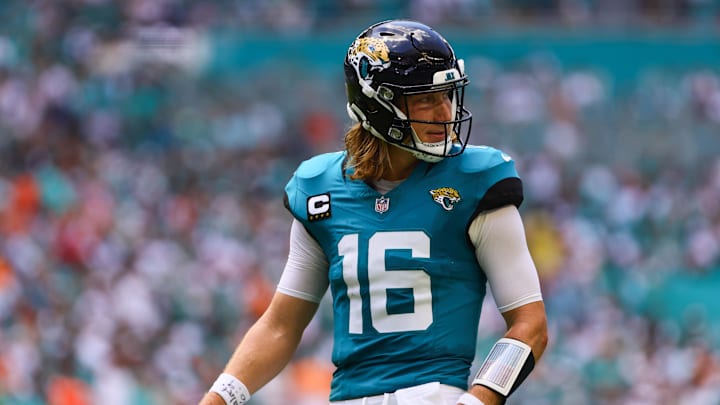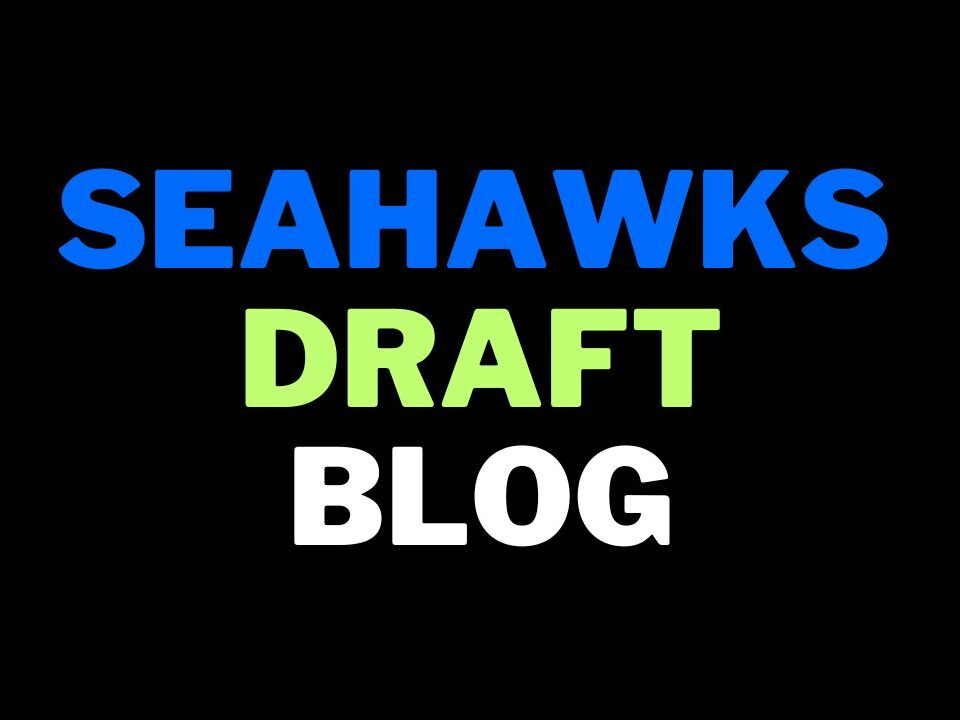
Maybe it’s just a week one thing? It wouldn’t be the first time the opening slate of games provided an outlier across the NFL.
I found this interesting though:
Week 1 passing touchdowns since 2018:
61: 2021, 2019
60
59
58
57
56
55
54
53
52: 2020
51: 2022
50
49: 2018
48
47
46
45
44
43
42
41
40
39
38
37: 2023
36
35: 2024— Warren Sharp (@SharpFootball) September 10, 2024
It’s not just that 2024 is so low on this list. It’s right next to 2023. For the last two seasons, offensive football has been pretty poor in week one.
There could be a good reason for this. It feels like fewer teams than ever play their starters in pre-season. This is possibly giving defenses an advantage where offensive execution and detail can, I suppose, be outdone by a lot of disciplined running and hitting.
The NFL is a constantly evolving league though. I was speaking to someone within the NFL earlier this year who reckoned the Shanahan-inspired offenses would only last so long and that we might see a return to a more ‘old-fashioned’ brand of football. I didn’t ask for details but after week one, you can see why they might have a point.
Offensive lines are bad across the league. Even the Titans, who spent the 7th pick in this year’s draft and the 11th pick last year on their left tackle and left guard, struggled to do much of anything up front. They also signed center Lloyd Cushenberry to a four-year contract and employed one of the top O-line coaches in the league in Bill Callahan.
With such a league-wide O-line problem, we saw teams look for solutions last weekend. Nothing was more striking than what we saw in Seattle. They turned to the running game for relief after a dismal first half of pass-pro. I’d suggest it might be a tactic others increasingly turn to. If you can’t pass protect properly, get your guys to come off the ball and run block. Quite a few teams can’t protect properly.
From 2011 — Drew Brees’ most productive season in the NFL — to Patrick Mahomes’ first year as a starter in 2018 where he scored 50 touchdowns — the league average for the highest number of scores by a QB was 43. That has since dropped to 40.8 from 2019 to 2023. That average will dip below 40 if the leading quarterback this season fails to match Dak Prescott’s 36 passing touchdowns from 2023. It’s not that long ago that it felt like we might start to see a player top 50 touchdowns annually.
We’ll need to wait and see if there’s any significant shift developing here in terms of defensive excellence combined with a run-game renaissance but it won’t be the worst thing for the Seahawks given the identity and philosophy of their new coaching staff.
The thing I’m curious about though is how a reduction in league-wide quarterback production is coinciding with a massive increase in quarterback salary. We all know it’s happening because league revenue is increasing and so is the cap. We’re also seeing defensive linemen, offensive tackles and in particular wide receivers getting huge extensions too.
Yet for the most part, we aren’t seeing non-elite players get elite contracts — apart from at quarterback.
Jeremy Fowler noted this on ESPN recently:
“Life in the middle is better than life without a quarterback,” one NFL head coach said. “It’s just so hard to win without a capable passer that teams are willing to overpay for a known commodity.” That sentiment will continue to drive the market, even if teams are fatigued by doling out top-of-market deals to quarterbacks who aren’t top five at their position. This comes against the backdrop of Week 1 quarterback play that was mostly mediocre. Seventeen of 32 starting QBs threw for fewer than 200 yards, while six were sacked at least four times.”
Jordan Love ($55m a year), Trevor Lawrence ($55m), Tua Tagovailoa ($53.1m) and Jared Goff ($53m) are not among the NFL’s QB elite. They are among the highest paid players in the league though, along with Joe Burrow ($55m), simply because of the position they play. Dak Prescott recently set the record with a new $60m a year deal.
I appreciate there are ways and means of working around these contracts to prevent teams evaporating their cap space every year. It’s still a huge commitment to make just to avoid, as the unnamed NFL coach said above, ending up without a ‘known commodity’.
I’d argue some of these players being known commodities is exactly why they shouldn’t be given huge contracts.
What did we know about Kirk Cousins this year? We knew he was a 36-year-old free agent quarterback coming off a serious injury, one of the worst kinds of injures for recovery (achilles). He’s never had difference making traits or any significant success in his career. Cousins is the type of player who provides a base level of performance that prevents a team from being awful — but you can just as easily argue he’ll never take you to greatness either.
He was given $45m a year in Atlanta.
Did anyone watch Daniel Jones’ first four years in the NFL and see anything other than mediocre at best? The Giants didn’t even take up his fifth-year option. After one season where Jones basically played a supportive role in a playoff year, he was given $40m annually.
Derek Carr’s been around for a long time without really achieving much. He has never been able to elevate his performance beyond ‘not bad’. The Saints chucked $37.5m a year at him in what now feels quite a cheap contract compared to some of the other deals. Had he been a free agent a year or two later, the reality is Carr likely would’ve earned as much as Cousins.
Everyone gets more. Tua feels completely replaceable within a scheme that has succeeded with multiple different players, not to mention they have two amazing receivers to throw to and a dynamite running game. The Dolphins gave him $53m a year. Trevor Lawrence hasn’t remotely lived up to expectation so far but the Jaguars will give him a top salary of $55m to see if another year or two will help.
In the meantime, something really frustrating happens. There’s very little in the way of asking whether any of this is warranted or ‘right’. Instead, we just get people readjusting what constitutes market value, before talking up the next player to get ‘what they deserve’. As other players get paid too much, the next one waits his turn.
Geno Smith’s $38.5m cap hit for 2025 is often described as quite cheap by some fans and media. It’s only cheap, though, compared to the inflated salaries others are getting. It doesn’t mean you need to do the same thing.
I’d recommend reading Mike Sando’s latest article from the Athletic on the subject. It’s pretty much the first time I’ve seen any piece touch on something we’ve been discussing for a while.
Why aren’t teams prepared to play hardball and eventually move on?
Here’s a quote from one anonymous source per Sando:
“Most of the coaches and GMs haven’t won enough to be able to tell their owners, ‘You know what? Let’s reset.”
This is probably what it comes down to. It’s hard enough to manage an owner when you reveal you’re taking a quarterback in round one. Sometimes, the owner might be telling you to make the pick. Either way, it could be a challenge to then walk into the same office four years later and say you want to cut bait.
Your job could be in jeopardy if you’re admitting you made a mistake on a QB. In some cases, it might be easier to make a case that the player is ‘close’ to being great, you actually made the right decision and the owner should pay your hand-selected player to enable him to reach his destiny (aka don’t fire me yet).
Or, if that quarterback has produced some level of production (eg Tua), the owner might want to know why you want to risk turning his marketable, winning team back into a potential clown-show with a no-name quarterback.
This is where I think the Seahawks might be able to find an edge. John Schneider seems to have enough respect and control in Seattle to do what he wants. It certainly appears he came out on top when the time came to make a call on Russell Wilson’s future and Pete Carroll’s.
I suspect whatever he decides to do will be respected. Thus, he’ll be left alone to make any big decision on a quarterback.
I don’t expect he’ll be under any pressure to deliver a huge extension to Geno Smith next off-season unless it’s earned. So while Smith might be telling the CBS sideline reporter at the Denver game that he’s motivated by Seattle’s decision not to award him a new contract this summer (why did he expect one?) — the Seahawks are not likely to feel any pressure to do anything they don’t feel comfortable doing. Unlike other teams, I’m not convinced they’ll feel obliged to act, especially with Smith under contract for 2025. I don’t think they’ll be rushing to do something unless they’re absolutely sure — unlike some other teams who have seemingly rolled dices with fingers and toes crossed.
Equally, assuming Schneider has years at the helm still to come, he’ll have an opportunity to draft a quarterback in the future and make a decision in due course on whether to pay them big money or not.
Eventually someone is going to do things differently. A team always does. While the rest of the league throws money at non-elite quarterbacks, will a team be brave enough to say ‘no’? To seek value at the position rather than overpay in order to have a ‘known commodity’? To avoid making a huge financial decision based around the feeling that things ‘could be worse’?
Geno Smith is a good example of a reclamation project that has delivered a bit of success to Seattle. Baker Mayfield is another example in Tampa Bay.
It won’t be a surprise if Kevin O’Connell gets a tune out of Sam Darnold this year (they had a good start in week one). Jacoby Brissett seems to bounce around a bit but never really seems to play that badly when he gets a chance.
I’m not sure there’s a significant difference between some of these ‘prove it’ types and some of the players getting big money. There are obvious ‘flops’ too — Mitch Trubisky has not taken his second chance, Jameis Winston hasn’t been able to stick anywhere as a starter and Carson Wentz’s career fell of a cliff quickly. It shows there’s risk involved in moving on — but either way, if you’re not winning a Super Bowl, are you really any worse off?
I look at it this way. Seek greatness via the draft, while acknowledging it can take a long time to find it. Failing that, look for value and production. Do not pay a huge salary to someone undeserving, just because they are a quarterback. Even if that means making a difficult decision.
A new reclamation project will be available soon for someone. Bryce Young, once considered the unanimous #1 overall pick (although some of us preferred CJ Stroud) and highly rated among many NFL teams, will probably soon be looking for a fresh start. He looks terrible at the moment but someone, somewhere will give him a chance. There will be others in the same boat.
The draft is a hugely difficult projection game but one that comes with great financial benefit if you get the right player.
Experience can matter and as we’re seeing, players who’ve been around a long time can actually benefit from getting a new opportunity later in their careers. They can be a lot cheaper, too.
Being prepared to look for value at quarterback might be a strong tactic in the future. It could free up extra money to invest in offensive linemen for example, or other free agents. If defensive football has a greater impact on the league in the coming seasons — combining a great defense with a functioning offense might give you half a chance (as it did for Denver in 2015 and to a lesser extent, Seattle in 2013).
Market value is being set by teams spending too much money on undeserving quarterbacks. You can either be sucked in by that and join the club, or you can seek a different path that might actually give you a financial and footballing edge. I know which approach I hope the Seahawks choose.

